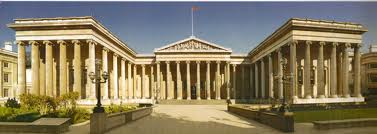Robert Nisbet Bain (1854–1909)
November 15, 2013
 Robert
Nisbet
Bain{::}** (1854–1909)** ‘…
was a British historian and linguist who worked for the British
Museum…’
Robert
Nisbet
Bain{::}** (1854–1909)** ‘…
was a British historian and linguist who worked for the British
Museum…’
Bain was a friend of James John Garth Wilkinson and his name is listed in both of James John Garth Wilkinson’s address books at the British Library and at 46 Hildrop Road, N [London] (Swedenborg Archive Address Book of James John Garth Wilkinson dated 1895. See also Swedenborg Archive A183r Address Book of James John Garth Wilkinson ‘Where is it’ dated 1.10.1892__).
From http://en.wikipedia.org/wiki/Robert_Nisbet_Bain ‘… Bain was a fluent linguist who could use over twenty languages. Besides translating a number of books he also used his skills to write learned books on foreign people and folklore. Bain was a frequent contributor to the Encyclopædia Britannica. His contributions were biographies and varied from Andrew Aagensen to Aleksander Wielopolski. He taught himself Hungarian in order that he could read Mór Jókai in the original after first reading him in German. He translated from Finnish, Danish and Russian and also tackled Turkish authors via Hungarian. He was the most prolific translator into English from Hungarian in the nineteenth century. He married late and died young after publishing a wide range of literature from or about Europe…’
From http://en.wikisource.org/wiki/Bain,Robert_Nisbet(DNB12) ‘… historical writer and linguist, born in London on 18 November 1854, was eldest son of David Bain, Cape and India merchant (still living in 1912), by his wife Elizabeth, daughter of Robert Cowan of Liverpool.
After education at private schools, he was for some years a shorthand writer in the office of Messrs. Henry Kimber & Co., solicitors, of 79 Lombard Street. From boyhood Bain showed an aptitude for languages, with a preference for those of northern Europe, and although he was only out of England for four brief periods in Denmark and Sweden in 1884, in Salies de Bearn and Pau in 1886, in Paris for a short time a few years later, and in Germany and Switzerland for some weeks in 1908 for health he acquired, unaided, a high degree of proficiency in no less than twenty foreign tongues, including Russian, Swedish, Hungarian, Finnish, Polish and Ruthenian. In 1883 he entered the printed books department of the British Museum as a second-class assistant, easily heading the list of candidates in the examination. He became in due course a first-class assistant.
Bain did much besides his official work, where his linguistic talent proved of great service. After his visit to Denmark and Sweden in Aug.- Sept. 1884, he began writing on Scandinavian and Russian history. ‘Gustavus III and his Contemporaries, 1746-92; an Overlooked Chapter of 18th Century History’ (2 vols. 1894) was based on the best Swedish authorities. There soon followed four monographs on Russian history: The Pupils of Peter the Great’ (1897), based largely on the collections of the Russian Imperial Historical Society; ‘The Daughter of Peter the Great: a History of Russian Diplomacy and of the Russian Court under the Empress Elizabeth Petrovna, 1741-62’ (1899), a capable survey of an obscure and difficult period; ‘Peter III, Emperor of Russia: the Story of a Crisis and a Crime’ (1902), in which Keith’s dispatches and the Mitchell papers were utilised for the first time; and ‘The First Romanovs, 1613-1725’ (1905). ‘The Last King of Poland and his Contemporaries,’ presenting a new view of its subject, appeared in 1909.
Of equal value were two volumes in the ‘Cambridge Historical’ series (ed. G. W. Prothero), ‘Scandinavia, 1513-1900’ (1905), and ‘Slavonic Europe’ (1908), and a life of Charles XII (1895) for the ‘Heroes of the Nations’ series. He contributed to the ‘Cambridge Modern History’ seven chapters on the history and literature of eastern Europe (vols. iii. v. vi. and xi.); and historical and biographical articles relating to Hungary, Poland, Russia and Sweden to the llth edition of the ‘Encyclopædia Britannica.’
Bain’s interests extended to literature as well as to history. In 1893 he issued a version of Andersen’s ‘The Little Mermaid and Other Stories,’ and in 1895 a sympathetic ‘Life of Hans Christian Andersen,’ founded on Andersen’s letters and itineraries. He was chiefly instrumental in introducing the Hungarian novelist, Maurus Jokai, to the English public, rendering into English ten of his stories, as well as a collection of ‘Tales from Jokai’ (1904). From the Russian he translated the Skazki of Polevoi as ‘Russian Fairy Tales’ (1893), as well as ‘Tales’ from Tolstoi (1901 and 1902) and Gorky (1902). From the Finnish he rendered Juhani Aho’s ‘Squire Hellmann and Other Stories’ (1893). His ‘Cossack Fairy Tales and Folk Tales’ (1894; illustrated by E. W. Mitchell) was the first English translation from the Ruthenian. He also translated from the Danish J. L. I. Lie’s ‘Weird Tales from Northern Seas’ (1893), and from the Hungarian Dr. Ignacz Kunos’s ‘Turkish Fairy Tales and Folk Tales’ (1896). Bain, who was in early life a fairly good gymnast and light-weight boxer, injured his health by excessive hours of work. A zealous high-churchman, he was for some years a sidesman and a constant attendant at St. Alban’s, Holborn. He died prematurely, at 7 Overstrand Mansions, Battersea Park, on 5 May 1909, and was buried in Brookwood cemetery. He married in 1896 his cousin, Caroline Margaret Boswell, daughter of Charles Cowan of Park Lodge, Teddington; she survived him only two months, dying on 10 July 1909…’